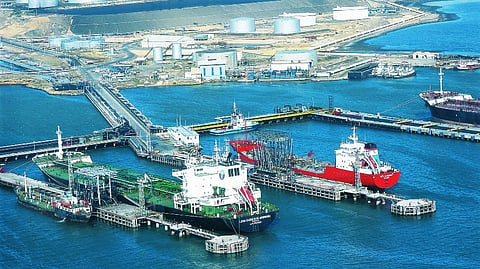FEATURE | Court auction heats up for Venezuela's refiner Citgo
A US court auction of Venezuelan-owned US refiner Citgo is heating up after delays as bidders raise their offers, good news for creditors seeking compensation from the South American nation for debt defaults and a wave of nationalizations under late Venezuelan President Hugo Chavez.
Citgo is the crown jewel of Venezuela's foreign assets. Last-minute bids have spiced up the competition in the bidding round due to end this month, in contrast to an underwhelming round last year.
Units of commodities house Vitol and hedge fund Elliott Investment Management have recently submitted improved bids to challenge the front-runner, a subsidiary of miner Gold Reserve .
The intensity of the competition led Judge Leonard Stark to extend the bidding period through Friday and reschedule the final hearing on the auction to mid-September.
The case should help repay up to 15 creditors for debt defaults and expropriations by Venezuela. But many involved and observing are unclear about the metrics the court officer overseeing the auction will use to determine the best offer.
Which factors will be considered?
The most difficult challenge for bidders and the team of court officer Robert Pincus has been to evaluate the offers' price versus "certainty of closure," a term defining a proposal's chances of becoming a real takeover.
The auction's winner will need to navigate a complex process to take over assets amid objections, challenges and other creditors' attempts to seize them in parallel legal cases.
Some bidders are willing to close a deal for Citgo's parent and then face parallel lawsuits that could lead to side payments to creditors later. Other bidders want to secure settlement agreements beforehand to reduce the risk of any future lawsuit.
Following the resolution of some legal cases since last year, the most important payment consideration now is to holders of a Venezuelan defaulted bond collateralized with Citgo equity, even though the holders have not won their case against Venezuela in New York. A key decision on that is expected next month.
Offers submitted in the bidding round include cash, non-cash considerations and credit bids. This makes their evaluation and comparison complex, since creditors have the right to approve or reject some components of the offers.
What has the judge prioritized before?
The court has changed its evaluation criteria since last year, when most creditors rejected a $7.3 billion conditional offer by Elliott's affiliate Amber Energy due to a proposed payment prioritization scheme that would have prevented many from cashing proceeds any time soon.
In a competition earlier this year to choose a stalking horse bid, the court selected a $3.7 billion offer by Contrarian Funds' affiliate Red Tree Investments to kick off the round. That bid was selected mainly because it included a separate $3 billion payment to the bondholders.
However, Judge Stark later instructed evaluators to prioritize price over certainty of closure for choosing the final winner so the payment to bondholders would not eat up proceeds intended for the creditors that have lined up in Delaware since 2017.
Will the criteria change to choose the final winner?
It remains unclear, even after a procedural hearing to discuss the topic this week.
In July, Pincus recommended the Gold Reserve group's $7.4 billion offer as the winning bid. That offer does not include an agreement to pay the bondholders.
But the bid was later challenged by other offers, including one by Amber Energy that included a $2.86 billion payment agreement with the holders.
What will happen after?
Many creditors including ConocoPhillips, which holds the largest claims of almost $12 billion, and Gold Reserve, have pursued legal actions outside of the US to seize Venezuela-owned assets, such as bank accounts, tankers and facilities controlled by Venezuelan state energy giant PDVSA.
Creditors can submit objections if they are dissatisfied with the auction's results. They and other creditors outside Delaware can also continue parallel cases in other US courts.
But it is unlikely that all 15 creditors, who are collectively trying to recover some $19 billion, will receive proceeds from the auction. Citgo was valued at up to $13 billion in an independent valuation ordered by the court. Bids, however, have not topped $11 billion.
Citgo, the US seventh-largest refiner, saw its profit plummet to $305 million last year from nearly $2 billion in 2023, and registered losses between the fourth quarter 2024 and the first quarter this year. The company returned to profit in the second quarter.
(Reporting by Marianna Parraga; Editing by Andrea Ricci)


